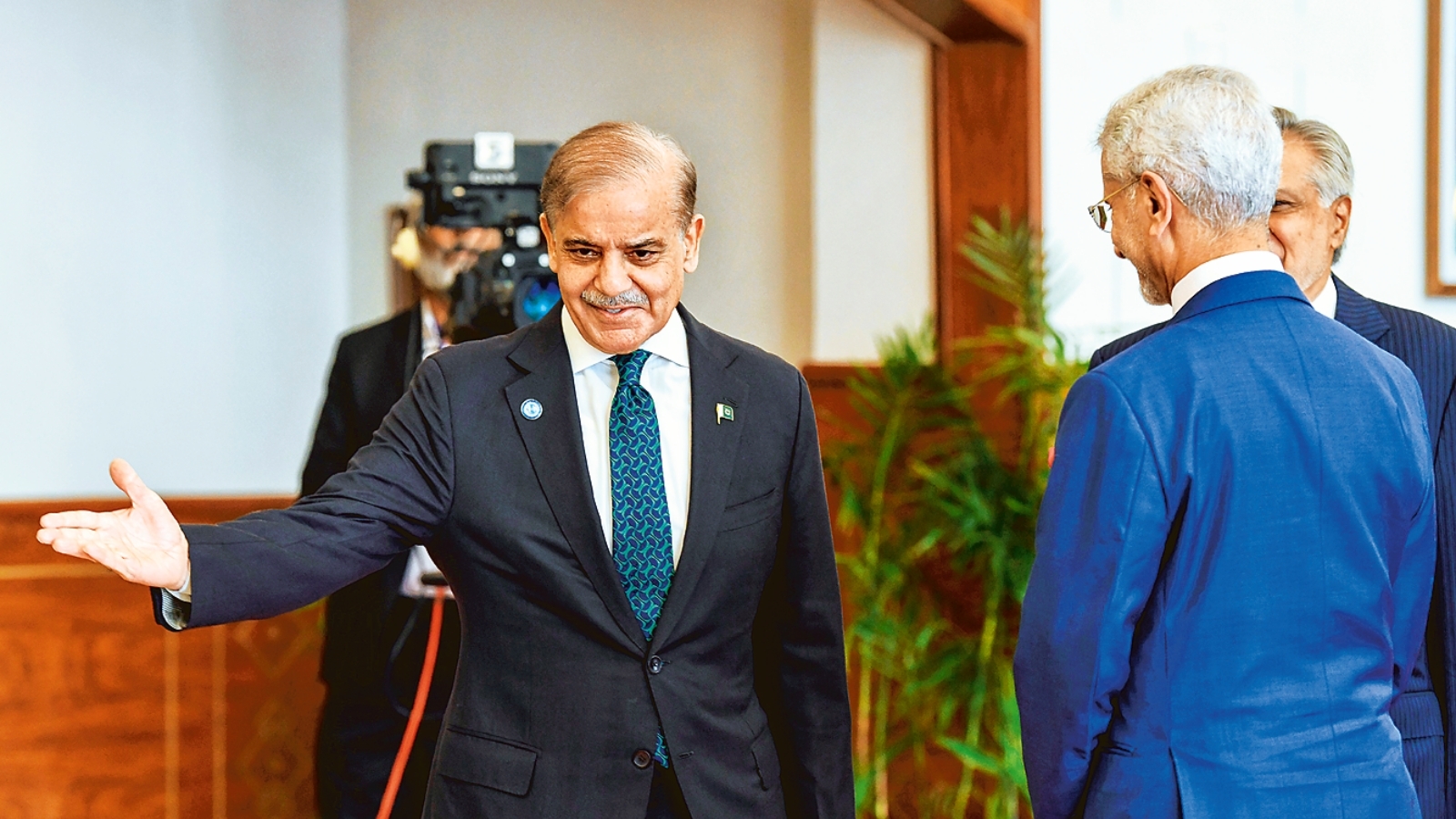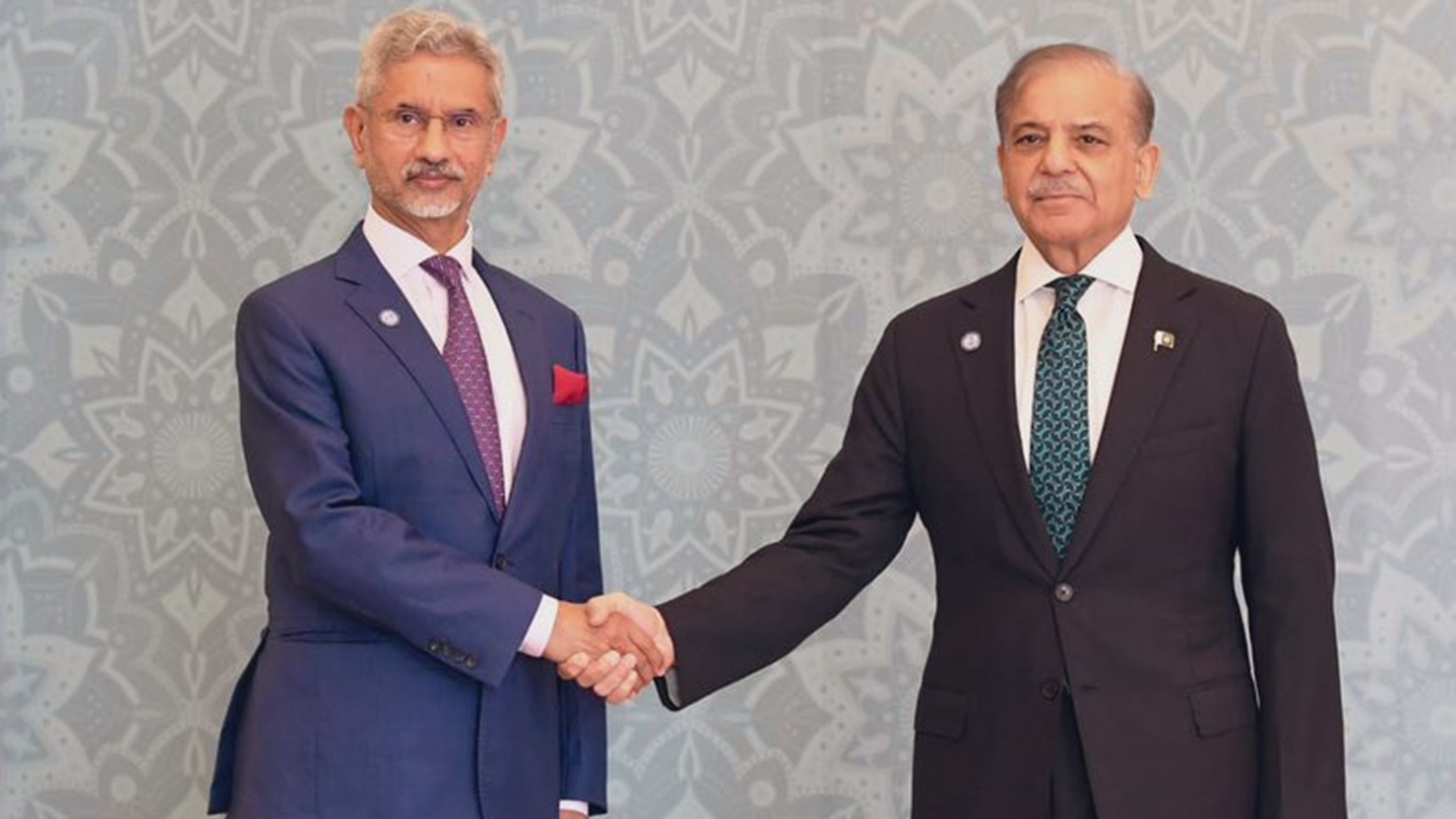Whether multilateral diplomacy can defrost the long-standing tensions between India and Pakistan is an enduring question, and the recent participation of India’s External Affairs Minister, Jaishankar at the SCO (Shanghai Cooperation Organisation) summit in Islamabad has brought this issue back into focus. While Jaishankar’s visit was framed within the context of a multilateral meeting, with no significant bilateral outcomes on the agenda, it carried symbolic significance and suggested the possibility of future diplomatic engagement between the two countries.
The optics were significant. Given the nearly frozen diplomatic relations between India and Pakistan, any high-level interaction between the two countries tends to attract substantial attention. Jaishankar’s presence at the SCO meet signalled that India remains open to participating in regional multilateral forums, even when hosted by Pakistan. Although India has repeatedly emphasised that any bilateral dialogue with Pakistan is conditional on the cessation of cross-border terrorism, Jaishankar’s visit demonstrated that India is not entirely disengaged from the broader regional diplomacy process.
This visit starkly contrasts Pakistan’s Foreign Minister Bilawal Bhutto Zardari’s visit to Goa in 2023 for the SCO Foreign Ministers’ meeting. Bilawal’s visit was marked by rhetorical exchanges between the two countries rather than any substantial diplomatic progress. Jaishankar’s trip to Islamabad, in contrast, indicated a more muted but potentially constructive tone.
Nevertheless, it is crucial to manage expectations about the visit. The SCO is primarily a platform for regional cooperation on counter-terrorism, economic collaboration, and regional security issues. The summit provided an indirect avenue for India and Pakistan to gauge each other’s positions without the pressure of formal bilateral talks. Multilateral engagements offer a unique opportunity for diplomatic signalling, which both sides can interpret and build upon. This is especially important for a relationship as complex as that between India and Pakistan, where public opinion, domestic politics, and historical grievances play a significant role in shaping diplomatic interactions.

For Pakistan, Jaishankar’s presence at the summit may have symbolised cautious optimism within its establishment about the potential resumption of dialogue. Pakistan has consistently expressed a desire to engage in talks with India. However, India’s position has remained firm: Dialogue can only resume in an environment free of cross-border terrorism. Jaishankar’s speech at the summit underscored this point, reiterating India’s stance that terrorism and diplomacy cannot coexist. He emphasised that any meaningful cooperation in South Asia, whether bilateral or multilateral, requires a cessation of terrorist activities emanating from Pakistan.
In many ways, the strained India-Pakistan relationship has had broader regional repercussions. The South Asian Association for Regional Cooperation (SAARC), intended to foster cooperation among South Asian countries has been paralysed due to the rivalry between India and Pakistan. Since the cancellation of the SAARC summit in Islamabad in 2016, there has been little progress in reviving the organisation, leaving smaller South Asian countries like Nepal, Bhutan, Sri Lanka, and Bangladesh without a functional platform for regional cooperation. These nations, which rely on SAARC for trade, infrastructure development, and cultural exchange, seem to have been hurt as a result of the India-Pakistan dispute. Revitalising SAARC for the well-being of South Asian countries should be a priority. It remains the only regional platform that fosters development, cooperation, and integration in South Asia. For SAARC to regain its relevance, India and Pakistan must rise above their bilateral disputes and commit to the broader goals of regional prosperity and stability. This would require reciprocal confidence-building measures and a genuine willingness to engage in dialogue.
Pakistan could take the first step by reappointing its High Commissioner to India, a position that has been vacant since the diplomatic fallout in 2019. This gesture would indicate a desire to restore regular communication channels between the two countries. India too could signal goodwill by participating in multilateral sporting events hosted by Pakistan, such as the ICC Champions Trophy scheduled for 2025. Sporting ties, particularly cricket, have often served as a bridge for improving people-to-people relations between the two countries, and participating in such events could help ease tensions. All these may not resolve the deep-rooted issues that plague India-Pakistan relations, they can create a conducive environment for dialogue.If the Indian Foreign minister can travel to Pakistan to participate in multilateral forums like the SCO, there seems to be no reason the Indian cricket team cannot also participate in a multilateral championship hosted by Pakistan. India could still maintain its position of not engaging in bilateral cricket while participating in multilateral tournaments, thereby demonstrating goodwill without compromising its current stance on bilateral relations.
Ultimately, the road to normalising relations between India and Pakistan is fraught with historical grievances, territorial disputes, and security challenges. The fundamental issues of terrorism, Kashmir, and bilateral disputes will continue to dominate the discourse. However, confidence-building measures, such as the 2021 ceasefire agreement, provide a foundation upon which further progress could be made. The SCO meeting in Islamabad may serve as a small but significant step toward creating the conditions for dialogue, even if no immediate outcomes were achieved.
India’s position remains clear: Any dialogue with Pakistan will only happen in an environment free from terrorism. The hope is that over time, engagements in multilateral fora will soften hardline positions and open avenues for meaningful dialogue.
The writer is Professor at MMAJ Academy of International Studies, Jamia Millia Islamia, New Delhi



